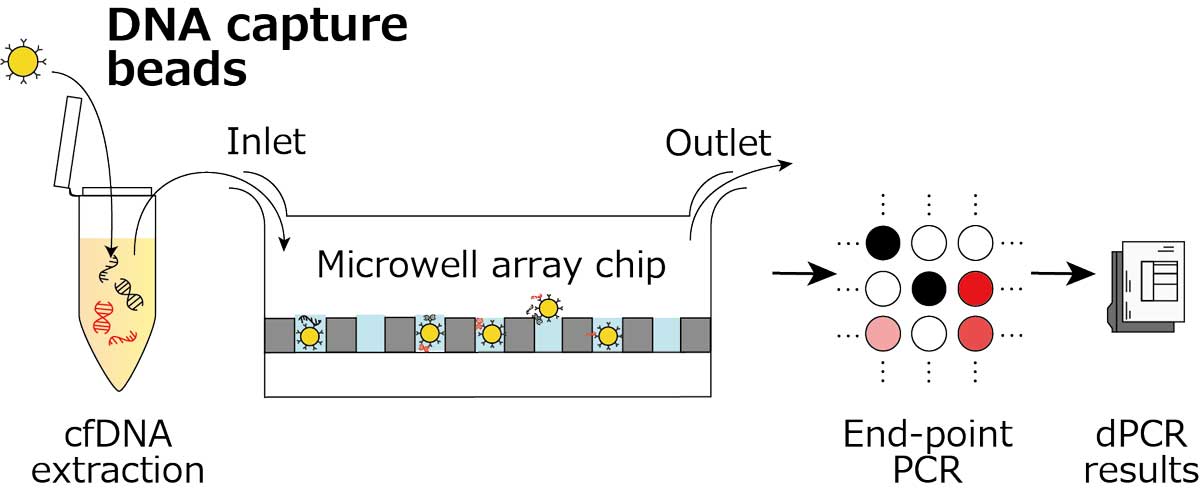Abstract
The circulating cell-free DNA (ccfDNA) refers to all DNA fragments suspended in blood plasma. ccfDNA that originated from a tumor is called the circulating tumor DNA (ctDNA). Since the ctDNA reflects the genomic information of the tumor that it originates from, the use of ctDNA as a noninvasive tumor marker has been investigated for ‘liquid biopsy’. However, ctDNAs are mixed with a large amount of wild-type ccfDNAs, limiting the sensitivity of ctDNA detection from a sample.
In this study, we propose a novel digital PCR (dPCR) system by utilizing the microbeads coated with DNA immobilization linker (DNA-capture-beads) and the microfluidic chip containing picoliter-wells arrays. The DNA-capturebeads are able to capture DNAs directly from blood plasma/serum without requiring any hybridization steps. Then, each microbead is compartmentalized inside picoliter-wells arrays and followed by PCR to detect the presence of the target ctDNA.
Our preliminary studies suggest that the DNA-capture-beads feature a better capture yield which is two times higher compared to the nonspecific binding of DNAs by gold microbeads. In addition, the DNAs captured on the surface of DNA-capture-beads can be amplified directly without eluting them from the beads. These two advantages provided by DNA-capture-beads lay the groundwork for a simple and robust dPCR strategy for highly sensitive ctDNA detection platform.
 Conceptual illustration of the dPCR system
Conceptual illustration of the dPCR system
Collaboration
- AIST
Sponsor
- JST